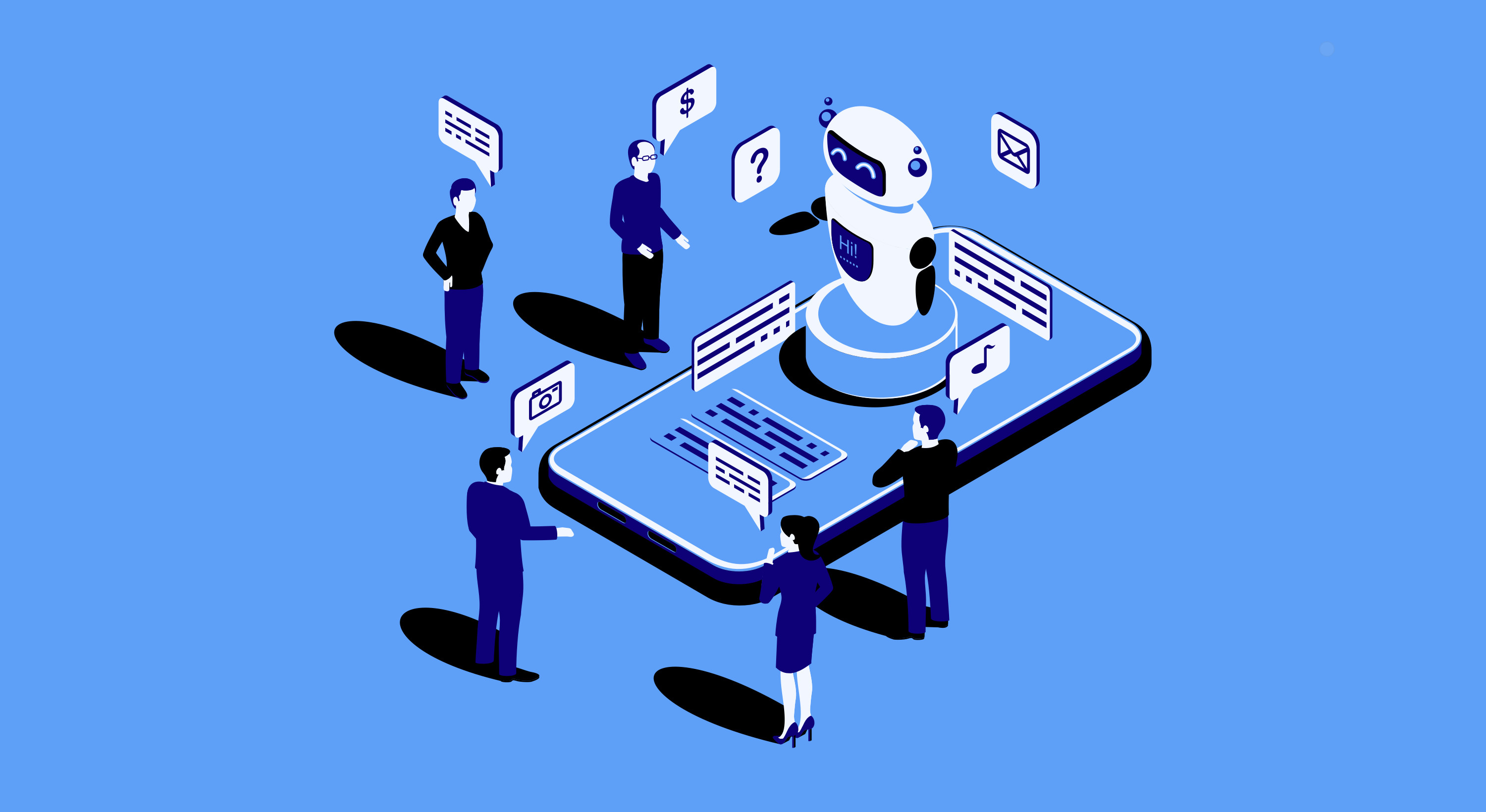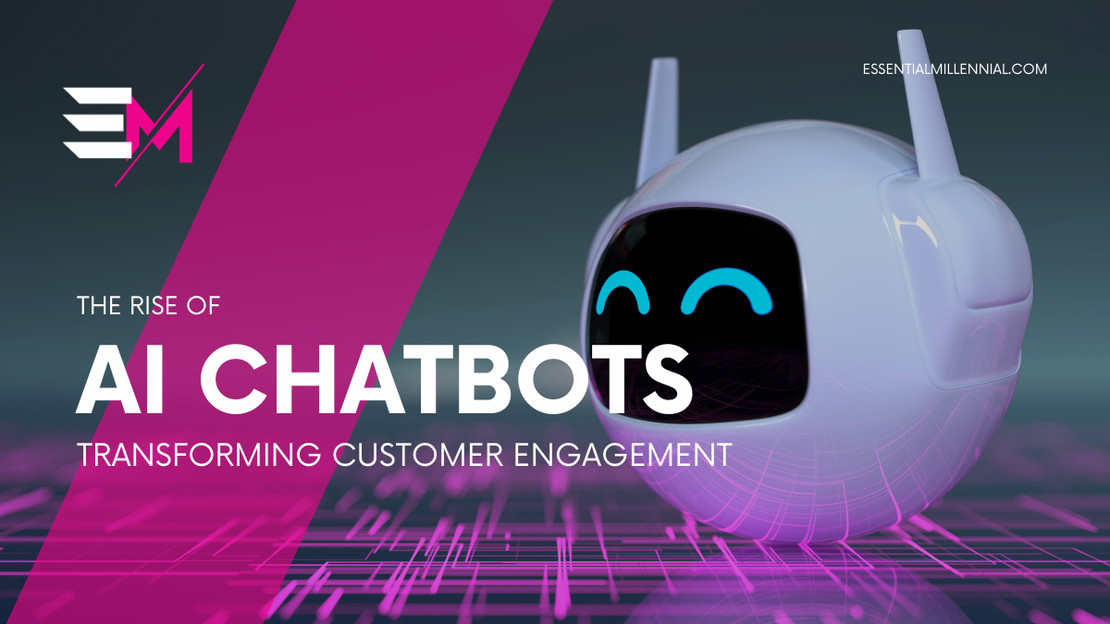The Dawn of Conversational AI: Chatbots Are Changing the Game
The world is buzzing with excitement about the rise of artificial intelligence (AI) and its transformative power across various industries. One area where AI is making a significant impact is customer service. Enter AI-powered chatbots, the conversational AI agents revolutionizing how businesses interact with their customers. These intelligent programs, powered by natural language processing (NLP) and machine learning (ML), are capable of understanding and responding to customer inquiries in a human-like manner.
Why Are Chatbots Taking Over Customer Service?
The shift toward AI-powered chatbots is driven by a combination of factors. Customers are increasingly demanding instant gratification and personalized experiences, and businesses are looking for ways to streamline operations and improve efficiency. Chatbots offer a compelling solution, providing several benefits, including:
- 24/7 Availability: Chatbots are always available, eliminating the need for customers to wait for business hours to get assistance. This round-the-clock availability improves customer satisfaction and builds trust.
- Instantaneous Response: Unlike human agents, chatbots can respond to customer queries in real-time, reducing wait times and improving customer experience.
- Personalized Experiences: AI-powered chatbots can learn from customer interactions, providing tailored responses and recommendations, enhancing the overall customer experience.
- Cost Savings: Automating routine tasks like answering frequently asked questions (FAQs) and resolving simple issues frees up human agents to focus on more complex problems, leading to significant cost savings for businesses.
- Data Collection and Analytics: Chatbots collect valuable data on customer interactions, providing insights into customer preferences, pain points, and overall satisfaction. This data can be used to improve products, services, and customer support strategies.
Beyond Customer Service: Exploring the Multifaceted Applications of Chatbots
The applications of chatbots extend far beyond customer service. They are being deployed in diverse industries and across various functions, demonstrating their versatility and potential for transforming various aspects of business operations.
Healthcare: AI-powered chatbots are becoming increasingly popular in the healthcare sector. They can be used to provide patients with health information, schedule appointments, and even offer remote consultations. For instance, a chatbot can guide a patient through the process of booking an appointment with a specific doctor or provide them with information about available treatments. The ability of chatbots to provide personalized health information and support has the potential to revolutionize healthcare delivery and improve patient outcomes.
Education: Chatbots can be used to personalize learning experiences for students and provide them with real-time support. Imagine a chatbot that can answer student questions, provide feedback on assignments, or even offer customized learning materials. This ability to provide instant and individualized support has the potential to enhance learning outcomes and improve student engagement in the classroom.
Finance: AI-powered chatbots are transforming the financial services industry. They can be used to answer customer inquiries about financial products, provide personalized investment advice, and even process financial transactions. By automating these tasks, chatbots can help financial institutions improve efficiency and enhance customer satisfaction. For example, a chatbot can help a customer open a new bank account or apply for a loan, guiding them through the process and answering their questions along the way.
E-commerce: Chatbots are becoming essential tools for businesses in the e-commerce sector. They can be used to provide product recommendations, answer customer questions, and even assist with the checkout process. By providing personalized support and guidance, chatbots can help increase conversion rates and improve customer satisfaction. For instance, a chatbot can recommend products to a customer based on their browsing history or help them find the right size or color for a specific product. These capabilities can help drive sales and enhance customer loyalty.
Travel and Tourism: AI-powered chatbots are making waves in the travel and tourism industry. They can be used to answer customer inquiries about destinations, book flights and hotels, and even provide personalized travel recommendations. By providing a convenient and personalized booking experience, chatbots can attract more customers and drive revenue for travel businesses. For example, a chatbot can help a customer find the best flights to a specific destination based on their budget and travel dates. This ability to provide personalized recommendations and streamline the booking process can significantly enhance the customer experience.
The Future of Chatbots: What Lies Ahead
The future of chatbots is bright. As AI technology continues to advance, chatbots will become even more sophisticated, capable of understanding and responding to customer inquiries in a more human-like way. They will be able to handle more complex tasks, providing a more seamless and personalized customer experience. Moreover, the integration of chatbots with other emerging technologies such as the Internet of Things (IoT) and blockchain has the potential to unlock even more innovative applications.
The Ethical Considerations of AI Chatbots
The rise of AI-powered chatbots also raises ethical considerations. It is crucial to ensure that chatbots are used responsibly and that they do not perpetuate biases or discrimination. It is important to develop ethical guidelines for the development and deployment of chatbots, ensuring transparency, accountability, and fairness in their interactions with customers. Moreover, businesses should be transparent about the use of chatbots, informing customers when they are interacting with a chatbot rather than a human agent. This transparency helps build trust and avoids potential misunderstandings.
The rise of AI-powered chatbots is a testament to the transformative power of artificial intelligence. These intelligent agents are revolutionizing the way businesses interact with customers and are poised to reshape various industries in the years to come. As AI technology continues to advance, chatbots will become even more sophisticated, offering businesses and customers new possibilities and enhancing the customer experience in unprecedented ways. However, it is imperative to address the ethical considerations associated with the development and deployment of AI chatbots to ensure that they are used responsibly and to promote a fair and equitable society.



















